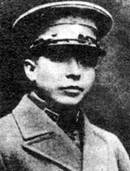Difference between revisions of "Xi'an Incident"
imported>Ciic (Created page with 'thumb|200px|right|Zhang Xueliang thumb|200px|right|Yang Hucheng In 1936, the Japanese imperialists continuously expanded the invasion into [...') |
(No difference)
|
Latest revision as of 02:51, 16 December 2009
In 1936, the Japanese imperialists continuously expanded the invasion into China, but Chiang Kai-shek adhered to a nonresistance policy and continued the civil war. The Northeast Army, led by Zhang Xueliang, and the 17th Route Army, led by Yang Hucheng, were deployed to Shaanxi and Gansu provinces to attack the Red Army. Because of the influence of CPC's anti-Japanese national united front policy and the people's anti-Japanese movements, Zhang and Yang came to a truce with the Red Army and demanded that Chiang Kai-shek unite with the CPC to resist Japan. Chiang not only rejected the demands of Zhang and Yang but also mustered troops under his direct control on the border between Henan and Shaanxi to press Zhang and Yang to continue attacking the Red Army.
On Dec. 4, Chiang Kai-shek flew to Xi'an to supervise the battle. Then, on Dec. 7, Zhang Xueliang arrived at Huaqingchi, Lingtong, and tried to reason with Chiang about stopping the civil war and unanimously resisting Japan, but his advice was rejected. Chiang resolutely refused to change the policy of “Suppressing the CPC.” On Dec. 9, Zhang told the processional students he would give a reply to their patriotic demands in a week. Finally, on Dec. 12, Zhang and Yang launched the Xi'an Incident by military action and detained Chiang in Huaqingchi and put more than 10 people, including KMT Commander Chen Cheng, into prison. They proclaimed to cancel the “Northwest Bandit Suppression General Headquarters” and established the Temporary Military Committee of Northwest Allied Force. Zhang Xueliang and Yang Hucheng served as chairman and vice chairman, respectively. They published a circular to all of China with a proposal to reorganize the Nanjing government, stop the civil war, jointly resist Japan and practice democratic politics.
On Dec. 16, the Nanjing government ordered a crusade against Zhang and Yang and appointed He Yingqin as the commander-in-chief. At this time, Pro-Japanese Wang Jingwei and He Yingqin attempted to seize the opportunity to complicate the situation in order to take the ruling power from Chiang Kai-shek and further make compromises with Japan. The CPC central committee proceeded from the benefits of Chinese people and sent representatives, including Zhou Enlai and Ye Jianying, to Xi'an to mediate at the invitation of Zhang Xueliang and Yang Hucheng. After reaching Xi'an on Dec. 16, Zhou Enlai negotiated with all related parties, and they worked out a plan in which Chiang would be released if he promised to resist Japan. On Dec. 15 and 19, they sent messages to the Nanjing Kuomintang Government to urge them to accept Zhang's and Yang's offering of peaceful settlement. On Dec. 22, Soong May-ling, Sung Tsu-wen and William Henry Donald from Australia, who was Chiang Kai-shek's adviser, flew to Xi'an for negotiation. After the hard work by Zhou Enlai and the struggles of the Chinese people, on Dec. 24, Chiang Kai-shek was forced to accept such preconditions as the truce and peace negotiation, uniting with the CPC in their resistance against Japan for the release of political prisoners. Chiang was released on Dec. 25 and Zhang Xueliang accompanied him to Nanjing. By then, the Xi'an Incident had been settled peacefully. However, after returning to Nanjing, Chiang Kai-shek immediately imprisoned Zhang Xueliang.
The Xi'an Incident and the peaceful settlement of the incident with support from the CPC played significant historic role for promoting the re-cooperation between the KMT and CPC in their unity and overall resistance against Japan.

